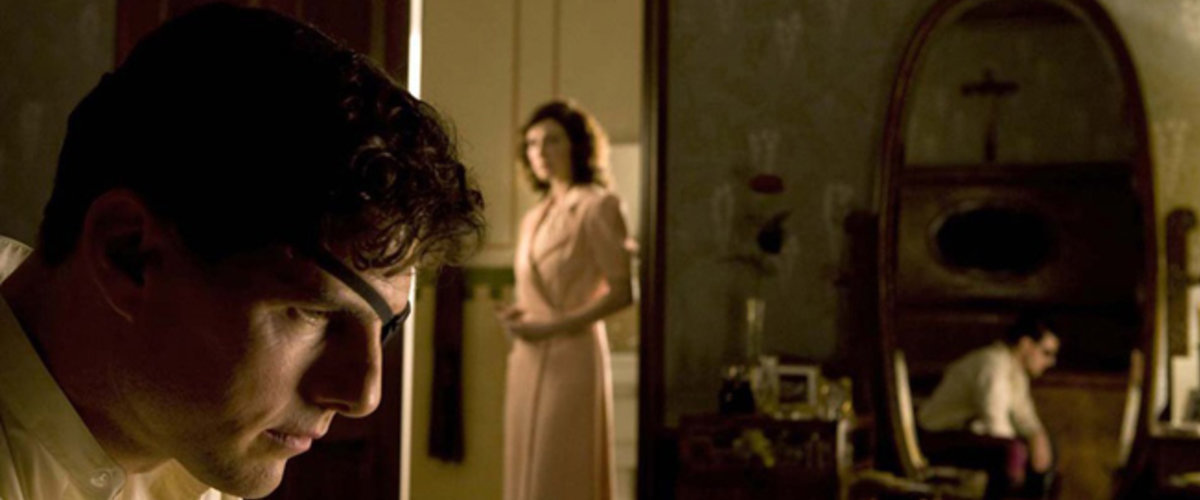Except we can’t. While there were,
unquestionably, truly depraved Nazis (just mention the named Oskar Dirlewanger
and I shudder,) there was also a significant German underground resistance. Many
Christians broke from the official Reichskirche
to form their own free church. This opposition extended into the highest
echelons of the government—many military leaders despised and distrusted
Hitler.
But Hollywood’s record hasn’t been
stellar when it comes to recognizing this. Needless to say, when Valkyrie—an account of the German
attempt to assassinate Hitler—was announced there was significant worry from
Germany that this production would slip into the same mistake. It wasn’t helped
when Tom Cruise was cast as the hero, Colonel Claus Philipp Maria Schenk Graf von
Stauffenberg, a German aristocrat with a pedigree even longer than his name.
But this worry was misplaced.
From the
first minutes, we are assured that this is going to be a distinctly German
tale. In fact, there are no Allied characters in the entire film. Cruise speaks
some of the first lines of the movie in German: “The Fuhrer’s promises of peace
and prosperity have fallen by the wayside leaving in their wake a path of
destruction. The outrages committed by Hitler’s SS are a stain on the honor of
the German army.” Right away, we know this man is German, but not a Nazi. He is
principled and cares about the honor of his country—we later discover he is a
Catholic (a fact indicated subtly and tastefully.)
Considering that we all know how Valkyrie will end, it does a terrific
job of building the suspense. When it came out, it received many poor reviews,
mostly because of the bias against Tom Cruise. That’s unfortunate, because
Cruise is quite proficient in the role, maintaining a quiet, understated
nobility, though providing nothing dramatically special. He is efficient and
just charismatic enough to seem like a leader of men—and so he fits the
character perfectly. Besides all this, his physical resemblance to the real von
Stauffenberg is striking.
The emotional heft is mostly
provided by other characters, though the relationship between von Stauffenberg
and his wife is poignant. Particularly good is Bill Nighy as a conflicted
conspirator, determined to take no chances till he can be certain of success.
Kenneth Branagh also has an excellent turn as General Henning von Tresckow.
Overall, the supporting cast (packed with classy British actors), is very fine,
though as has been commented, the stark contrast between Cruise’s American
accent and the variety of European voices is jarring and at times humorous.
In essence, the film is a crime
caper, like the writer’s earlier movie The
Usual Suspects. A group of varied, slightly eccentric men plan to pull off
a coup—they just happen to be disciplined, aristocratic German generals with an eye to saving the name and honor of their nation. It has all the psychological suspense of a mutiny, and the guilt, uncertainty, and suspicion that go along with it. While it's a thriller, it's not a shoot-'em-up flick. Very few shots are fired in the film, but it nevertheless possesses a very dark, apprehensive atmosphere, in which a phone call can be more terrifying than an explosive. The web of misinformation and uncertainty extends to the audience, as, when the final attempt comes, we are not allowed to see the outcome. Is Hitler alive? Isn't he? Of course, we know, but it's easy to slip into that naive hope that our heroes must come out triumphant because they are our heroes.
As a thriller, it doesn't spend much time delving into the big questions, in a way that, perhaps, it could have. But I didn't feel this distracted—it was merely not what the film was trying to accomplish. It's a fastidiously accurate historical piece—it feels real, a fascinating look into this small episode in history. It's trying to tell us what happened on July 20, 1944, not why it happened, or the deeper meaning of it all. The few moments when it reaches for something like this are when the men are repeating their wish that the world know that not all Germans were like Hitler.
The real Henning von Tresckow's last words were these:
 "[W]e did the right thing. Hitler is the archenemy not only of Germany but of the world. When, in few hours' time, I go before God to account for what I have done and left undone, I know I will be able to justify what I did in the struggle against Hitler. God promised Abraham that He would not destroy Sodom if only ten righteous men could be found in the city, and so I hope for our sake God will not destroy Germany....A man's moral worth is established only at the point where he is ready to give his life in defense of his convictions."
"[W]e did the right thing. Hitler is the archenemy not only of Germany but of the world. When, in few hours' time, I go before God to account for what I have done and left undone, I know I will be able to justify what I did in the struggle against Hitler. God promised Abraham that He would not destroy Sodom if only ten righteous men could be found in the city, and so I hope for our sake God will not destroy Germany....A man's moral worth is established only at the point where he is ready to give his life in defense of his convictions."
Indeed.
4/5 stars
Hannah Long



No comments:
Post a Comment
Warning: blogger sometimes eats comments - make sure you copy your message before you post.